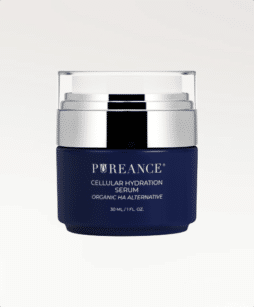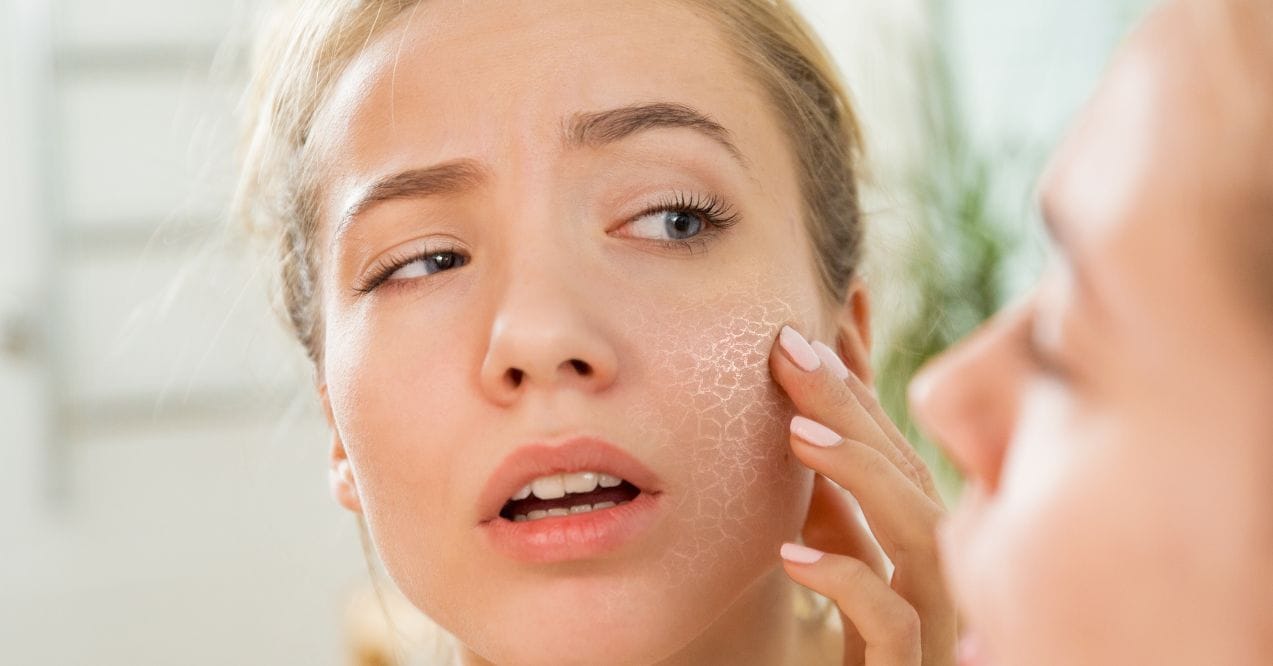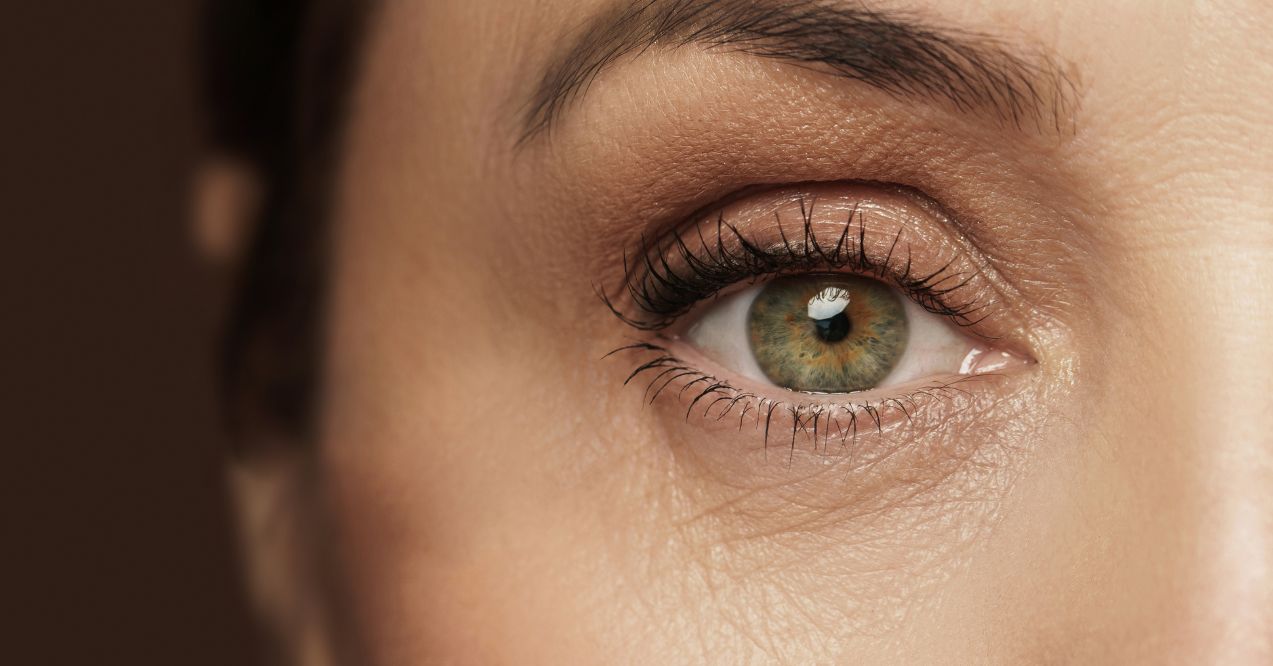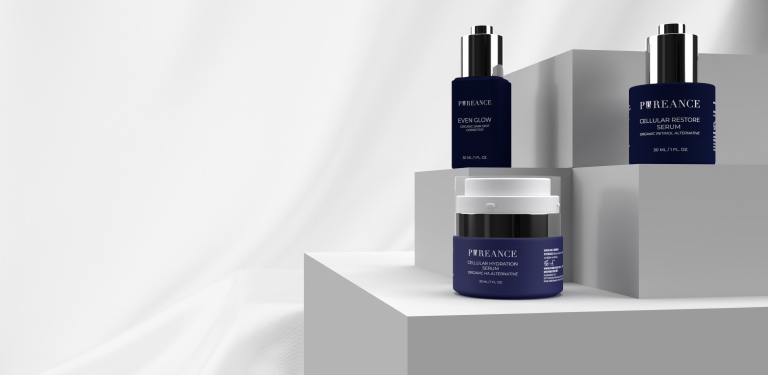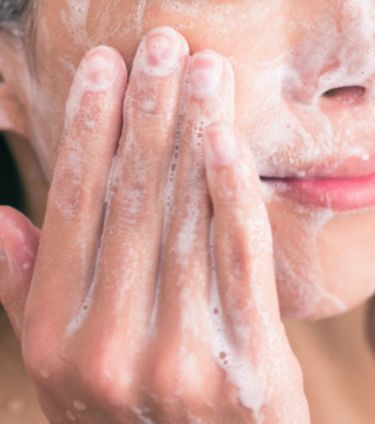
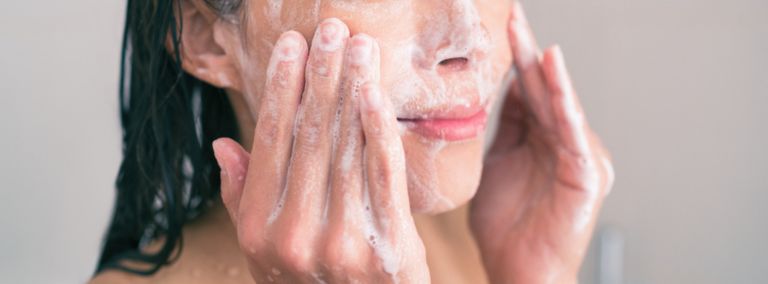

How to Care for Dehydrated Skin?
When it comes to understanding how to care for dehydrated skin, it’s crucial to distinguish between dry and dehydrated skin. While dry skin is characterized by a lack of oil, dehydrated skin suffers from a lack of water. This key difference means that even oily skin types can experience dehydration. Dehydrated skin often appears dull, feels tight, and may show fine lines more prominently. It’s essential to recognize the difference between dehydration lines vs wrinkles to address the correct issue effectively.
In this blog post, we will explore the signs, symptoms, and causes of dehydrated skin, and provide practical tips and routines to restore hydration. Whether it’s hydration from within, choosing the right skincare ingredients, or perfecting your daily routine, we’ve got you covered.
Key Article Findings
- Dehydrated skin lacks water, not oil, and can affect all skin types, leading to tightness, dullness, and more pronounced fine lines.
- Hydration from within, such as drinking plenty of water and eating water-rich foods, is crucial for restoring skin moisture.
- Using gentle cleansers and hydrating ingredients like hyaluronic acid, glycerin, and aloe vera can help maintain and restore skin hydration.
Understanding Dehydrated Skin
When learning how to care for dehydrated skin, it’s essential to understand its unique characteristics and underlying causes. Dehydrated skin lacks water, not oil, and this condition can affect any skin type, including oily and combination skin. Addressing dehydrated skin requires a multi-step approach that includes both internal adjustments and topical treatments to restore moisture and maintain a healthy complexion.
Signs and Symptoms
Common signs of dehydrated skin include a feeling of tightness, dullness, and increased sensitivity. Fine lines and wrinkles may also appear more pronounced. A simple way to identify dehydrated skin is through the pinch test: gently pinch a small area of skin on your cheek or arm, and if the skin appears wrinkled or takes time to bounce back, it’s likely dehydrated.
Causes of Dehydrated Skin
Understanding the causes of dehydrated skin is crucial for effective treatment. These causes can be broadly categorized into internal and external factors.
Internal Factors
Internal factors that contribute to dehydrated skin include insufficient water intake, poor diet, and certain medical conditions. For instance, a diet low in essential fatty acids can impair the skin’s barrier function, leading to increased moisture loss. Additionally, excessive consumption of caffeine and alcohol can deplete the body’s water reserves exacerbating skin dehydration. Hormonal imbalances and medications can also play a role in reducing the skin’s moisture levels.
External Factors
External factors that affect skin hydration include environmental elements such as low humidity, harsh weather conditions, and exposure to heating or air conditioning. These conditions can strip the skin of its natural moisture barrier. Skincare practices also influence hydration; over-cleansing, using hot water, and applying harsh skincare products can further dehydrate the skin. UV radiation and pollution damage the skin barrier, making it harder for the skin to retain moisture.
How to Help Dehydrated Skin
When considering how to help dehydrated skin, it’s vital to adopt a multi-step approach that combines internal hydration with effective topical treatments. This comprehensive strategy ensures that your skin receives the moisture it needs from both within and on the surface, helping to restore and maintain its natural balance.
Hydration From Within
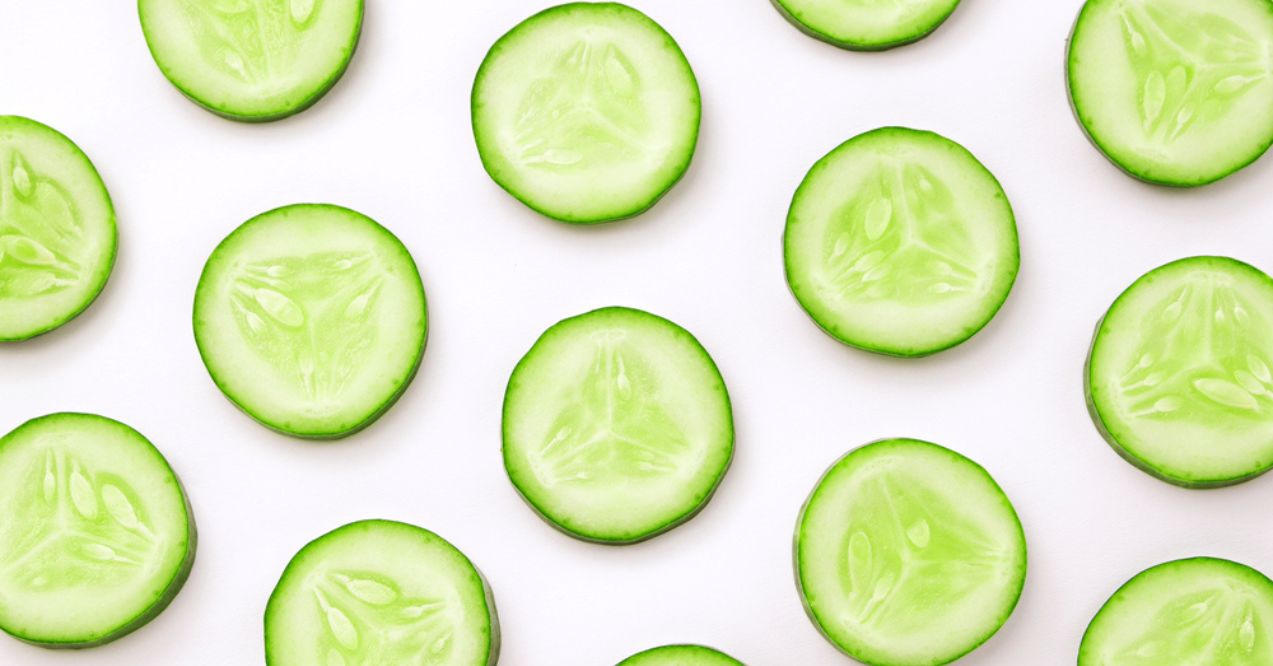
The first step in treating dry skin is to hydrate it from within. Drinking sufficient water is essential; aim for at least 8 glasses a day to maintain optimal hydration levels. Additionally, incorporating hydrating foods into your diet, such as cucumbers, watermelon, oranges, and leafy greens, can significantly raise your skin’s moisture levels. These foods not only provide water but also essential vitamins and minerals that support overall skin health.
Gentle Cleansing
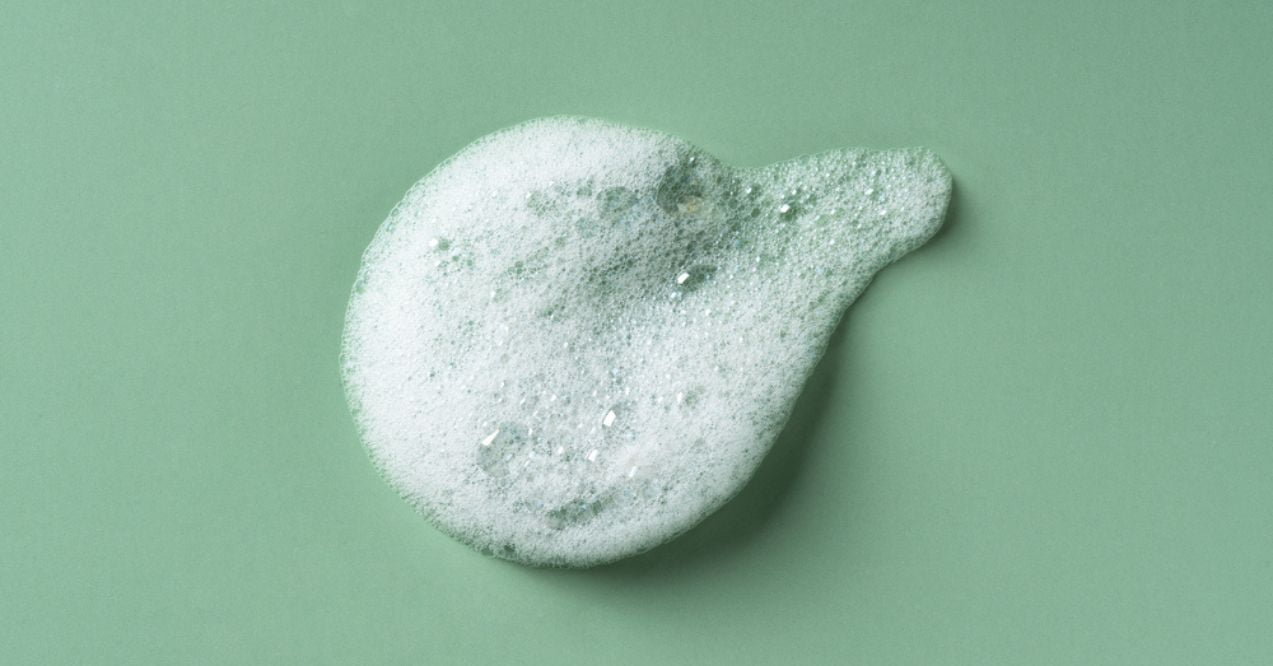
Gentle cleansing is crucial in how to treat dehydrated skin. Opt for non-stripping cleansers that preserve your skin’s natural oils. Avoid harsh ingredients like sulfates and alcohols, which can further dehydrate the skin. Instead, choose products with hydrating properties, such as those containing glycerin, ceramides, or aloe vera. Using cold water instead of hot water can also prevent excessive moisture loss during cleansing.
Effective Ingredients
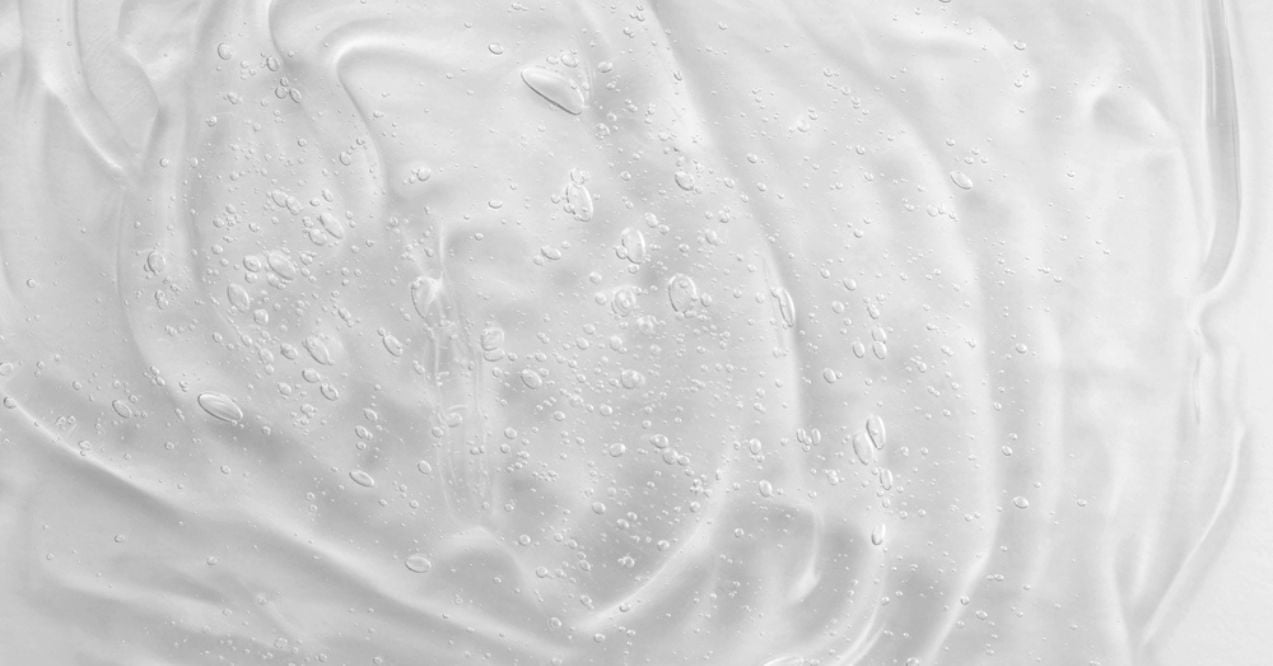
Selecting products with effective hydrating ingredients is key to helping dehydrated skin. One of the best options is hyaluronic acid, which has the ability to attract and retain water up to 1,000 times its weight. Other beneficial ingredients include glycerin, which draws moisture into the skin, and ceramides, which help to restore the skin barrier. Natural and organic ingredients, such as aloe vera, honey, and shea butter, also provide excellent hydration while being gentle on the skin.
Layering Skincare Products

Layering skincare products correctly is essential in maximizing hydration. Start with a hydrating toner or essence to prep the skin and boost moisture levels. Follow with a serum containing hyaluronic acid or other hydrating ingredients to deeply nourish the skin. Apply a moisturizer to lock in the hydration and create a protective barrier. In the morning, don’t forget to finish with a broad-spectrum sunscreen to protect your skin from UV damage, which can exacerbate dehydration.
By following these steps on how to help and treat dehydrated skin, you can effectively restore and maintain your skin’s hydration, achieving a healthier and more radiant complexion.
Daily Skincare Routine
Consistency is key when caring for dehydrated skin. A regular, well-structured skincare routine can effectively reduce dehydration, helping to maintain a healthy, glowing complexion. By following dedicated morning and night routines, you ensure that your skin receives the consistent care it needs to stay hydrated and resilient.
Morning Routine
Starting your day with the right skincare routine sets the foundation for how to care for dehydrated skin throughout the day. Follow these steps for a hydrated, protected complexion:
- Cleansing: Begin with a gentle cleanser that removes impurities without stripping your skin of its natural oils. Look for hydrating cleansers with ingredients like glycerin or aloe vera.
- Hydrating Serums: After cleansing, apply a hydrating serum that contains hyaluronic acid, glycerin, or other moisture-attracting ingredients. These serums help to lock in hydration and keep your skin plump and smooth.
- Moisturizer: Follow up with a lightweight, hydrating moisturizer. Choose one with ingredients like ceramides and antioxidants to support the skin barrier and defend against environmental stressors.
- Sunscreen: Finish your morning routine with a broad-spectrum sunscreen. UV rays can exacerbate dehydration, so applying sunscreen is crucial in defending your skin from further damage.
Night Routine
Your night routine is an opportunity to focus on rejuvenation, which is essential for treating dehydrated skin. Here’s a more intensive evening regimen:
- Cleansing: Start with a gentle cleanser to remove makeup, dirt, and excess oils. This step ensures that your skin is clean and ready to absorb the beneficial ingredients from your skincare products.
- Hydrating Serums: Apply a hydrating serum, similar to your morning routine. At night, you might opt for a serum with additional regenerative ingredients like peptides or niacinamide to support skin recovery.
- Rich Moisturizer: Use a richer, more emollient moisturizer at night. Look for products containing ingredients like shea butter, squalane, or botanical oils that provide deep hydration and support the repair of the skin barrier.
- Overnight Mask: Once or twice a week, incorporate an overnight hydrating mask into your routine. These masks offer intense hydration and can significantly improve skin texture and moisture levels by morning.
By adhering to these morning and night routines, you create a consistent regimen that addresses both immediate hydration needs and long-term skin health. This approach is essential for understanding how to heal dehydrated skin and maintain its moisture balance, leading to a more radiant and resilient complexion.
Conclusion
Caring for dehydrated skin requires a comprehensive approach that addresses both internal and external factors. By ensuring adequate hydration through water intake and a balanced diet, and using gentle, hydrating skincare products, you can restore and maintain your skin’s moisture levels. Consistent care, including a dedicated morning and night routine, is key to achieving a healthier, more radiant complexion, keeping dehydration at bay and ensuring your skin stays supple and glowing.
Hydrate dehydrated skin by drinking plenty of water, using gentle cleansers, and applying products with hydrating ingredients like hyaluronic acid, glycerin, and aloe vera. Incorporate moisturizing foods and avoid harsh environmental factors.
For dehydrated skin, use hydrating serums with hyaluronic acid, gentle cleansers, rich moisturizers, and avoid harsh ingredients. Ensure adequate water intake and consume hydrating foods like cucumbers and watermelon.
Healing dehydrated skin typically takes a few days to a few weeks, depending on the severity and consistency of your hydration and skincare routine.
At home, hydrate dehydrated skin by drinking water, using gentle cleansers, applying hydrating serums and moisturizers, and incorporating hydrating foods into your diet. Maintain a consistent morning and night skincare routine.
This site offers health, wellness, fitness and nutritional information and is designed for educational purposes only. You should not rely on this information as a substitute for, nor does it replace, professional medical advice, diagnosis, or treatment. If you have any concerns or questions about your health, you should always consult with a physician or other health-care professional. Do not disregard, avoid or delay obtaining medical or health related advice from your health-care professional because of something you may have read on this site. The use of any information provided on this site is solely at your own risk.
Nothing stated or posted on this site or available through any services are intended to be, and must not be taken to be, the practice of medical or counseling care. For purposes of this agreement, the practice of medicine and counseling includes, without limitation, psychiatry, psychology, psychotherapy, or providing health care treatment, instructions, diagnosis, prognosis or advice.
